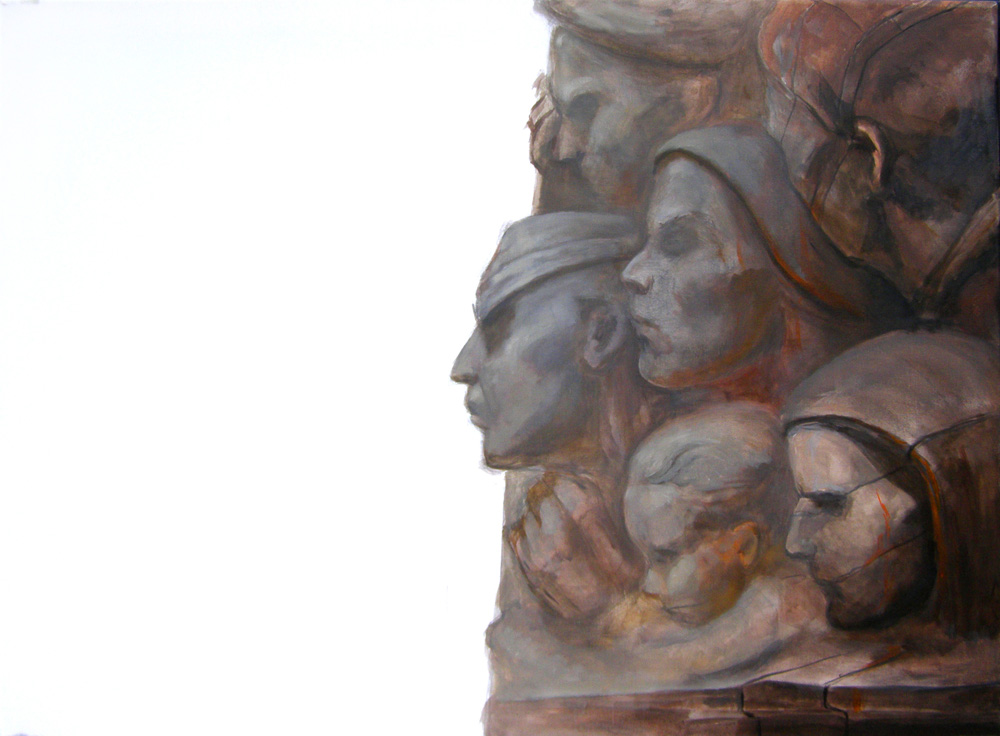Nina Pancheva-Kirkova’s doctoral research centres around a practice in painting, focused upon issues of nostalgia towards Socialist Realism. In this post she reports upon a paper she gave at the Euroacademia conference, Re(inventing) Eastern Europe.
As part of my practice based research on contemporary fine art in Bulgaria and its relations to our totalitarian past, I had the opportunity to take part in two of the conferences organized by Euroacademia, an experience which proved to be valuable for the development of my research project as it allowed me to share my work with other researchers, to receive helpful feedback and to obtain up-to-date information directly relevant to my work.
I presented my paper, ‘Between Propaganda and Cultural Diplomacy: Nostalgia towards Socialist Realism in Post-Communist Bulgaria‘, as part of the panel ‘Art as Cultural Diplomacy’ at the international conference Re(inventing) Eastern Europe held in Prague last November. In addition to the version of my paper available on the Euroacademia website, a longer, revised version will be published as a contribution to the book “Art as Cultural Diplomacy: European Perspectives” (ed. by Cassandra Sciortino, Cambridge Scholars Press). The book is due out in the summer, 2014.
Introducing aspects of my current practice based research, the paper focused on institutional and personal examples of nostalgic attitudes towards the totalitarian past, examined in relation to the functions of fine art as propaganda. I argued that nostalgia towards Socialist Realism is one of the impediments, which hinder fine art to function as cultural diplomacy; it maintains a sense of an illusory entity, which connects the post-communist artworld of the country to the monologue of the grand recit of communism. In my paper nostalgia was scrutinized with examples of strategies of display of Socialist Realist monuments and paintings, strategies that provoke images to be “read” as myths instead of being critically discussed, as well as in attempts to be institutionalized by private museums of communism. Critical views on nostalgia were explored in the works of the contemporary artists Nedko Solakov and Luben Kostov in attempt an alternative of the nostalgic notion of the past to be provided, supported by Tzvetan Todorov’s concept of fine art developed in his book “The Limits of Art”. The latter was discussed as an alternative both to the metanarratives of communism and the fragmentation of the post-communist artworld in Bulgaria. Discussing examples of debates on Socialist Realism and its status in post-communism, my paper sought to explore ways fine art to function as cultural diplomacy, ways that derive by an open dialogue on Socialist Realism beyond the political and by provoking free exchange of ideas.
